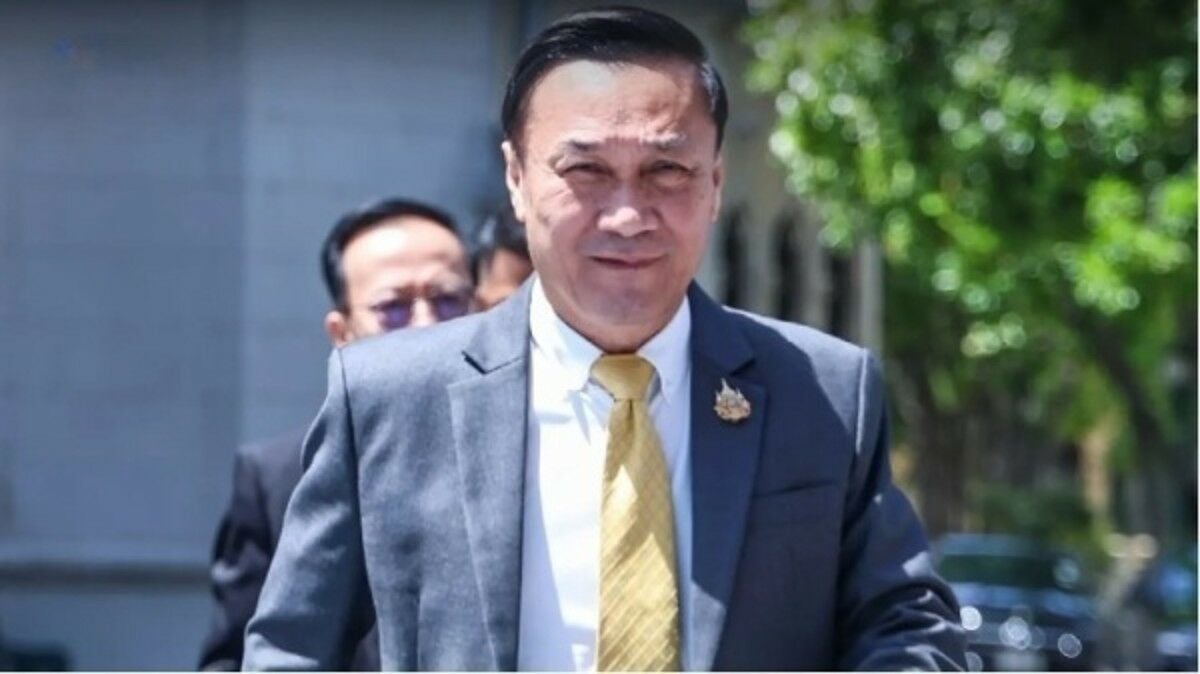Minister defends ‘controversial’ land title decision in Buriram

Deputy Interior Minister Songsak Thongsri recently stepped into the spotlight by defending a contentious decision made by a land committee regarding land title documents for plots in Buriram’s Khao Kradong area. This decision comes despite a 2021 Supreme Court ruling that the land is owned by the State Railway of Thailand (SRT).
The crux of the issue lies in the 5,083-rai expanse in the Khao Kradong area of Mueang district. The SRT is currently embroiled in a legal battle to reclaim this land, accusing the Department of Land of misconduct for issuing land title documents to individuals who allegedly occupied the land unlawfully.
In a previous ruling, the Central Administrative Court sided with the SRT, directing the land department to collaborate with the rail agency for a detailed examination of the boundaries in Khao Kradong.
To address the ongoing dispute, the land department established a committee under Section 61 of the Land Code to review the matter. Last week, it was disclosed that this land committee unanimously decided against revoking the land documents, a decision that the Department of Land’s director-general has since acknowledged.
The decision has sparked widespread criticism and raised questions regarding the authority of an administrative order in potentially overriding a Supreme Court ruling.
Minister Songsak, associated with the Bhumjaithai Party, clarified his stance yesterday, November 11, asserting that he remains neutral in the matter. He suggested that there are undisclosed details that both the public and the SRT might not be aware of.
“The Supreme Court’s ruling needs thorough examination to ascertain its applicability, whether it pertains to all or just those directly involved in the land dispute.”
Songsak affirmed that the SRT still has the option to contest the Department of Land’s decision. However, he noted that the SRT currently lacks the persuasive evidence required to sway the land committee into revoking the contentious land titles.
He also addressed concerns regarding potential biases within the committee, particularly allegations linking some members to an influential figure in Buriram. Songsak reassured that the committee was appointed following regulations and would be held accountable if found violating any laws.
Reports have highlighted that among the land documents under scrutiny, 12 title deeds covering 179 rai are allegedly linked to the Chidchob family. This influential political clan has established various enterprises on the land, including the Buriram International Circuit and a substantial 32,600-seat football stadium.
Justice Minister Tawee Sodsong weighed in on the matter, expressing scepticism about the land committee’s decision superseding the Supreme Court’s ruling. He emphasised the need for the SRT to pursue further legal actions.
The committee’s decision was influenced by a map presented to the Supreme Court by the SRT, which was crafted in 1996 in accordance with a resolution by the provincial committee on land encroachment. This map was intended to address issues raised by the Assembly of the Poor, reported Bangkok Post.
“The map differs from the one attached to a royal decree issued in 1921 concerning the purchase of land for the northeastern rail system.”
As a result, the committee resolved not to retract the land title issued by the land department.
Frequently Asked Questions
Here are some common questions asked about this news.
Why might an administrative order be seen as challenging a Supreme Court ruling?
Administrative orders can interpret court rulings differently, questioning their scope and applicability, especially if new evidence or interpretations arise.
How could undisclosed details influence public perception and legal outcomes in land disputes?
Revealing hidden information could reshape narratives, altering stakeholders’ understanding and potentially swaying legal decisions and public opinion.
What if the land committee’s decision triggers broader legal reforms in Thailand?
This could prompt a reevaluation of administrative power limits, enhancing clarity and consistency between judicial and administrative domains.
How do influential political families impact land disputes and legal proceedings?
Their involvement can sway public opinion, introduce potential biases, and complicate legal processes due to their power and resources.
What role does historical documentation play in current land disputes?
Historical maps and decrees provide crucial evidence, influencing boundary definitions and ownership claims in legal deliberations.
Latest Thailand News
Follow The Thaiger on Google News:


























